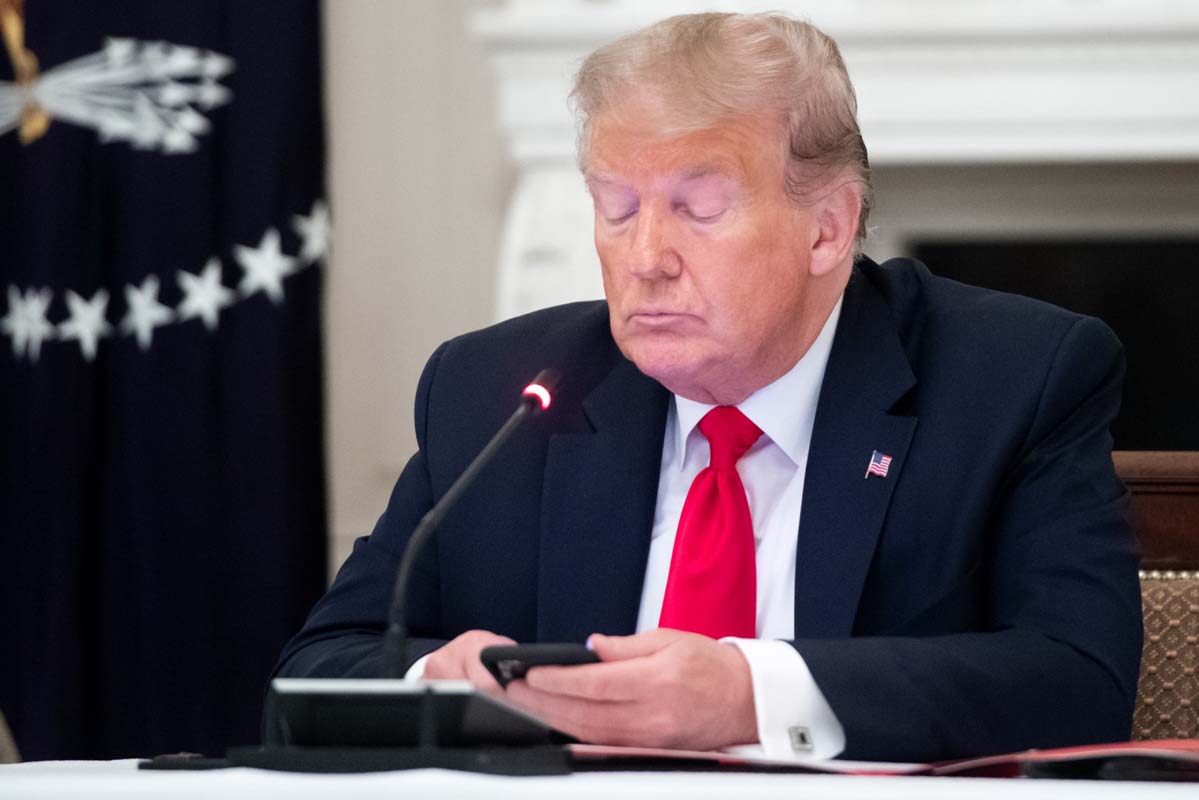
403
Sorry!!
Error! We're sorry, but the page you were looking for doesn't exist.
Trump’s trade war is no bluff
(MENAFN) President Donald Trump’s trade war is no bluff. True to his word, he has initiated a sweeping shift in U.S. trade policy, imposing broad tariffs aimed at recalibrating America’s trade balance with major partners. The bold move has rattled global markets and sparked fears of a deep economic downturn, possibly even a depression. Known for his confrontational and unilateral style, Trump is unwavering in his approach, which he insists will only change on his terms. However, the final outcome remains highly unpredictable, and many experts believe the U.S. could suffer just as much—if not more—than other nations.
Most economists agree that any benefits from this strategy would be long-term, while the short-term consequences for Americans could include higher inflation, struggling industries, reduced consumer power, and falling stock values. But Trump is less concerned with traditional economic forecasts. His aim goes beyond financial reform—he wants to upend what he sees as a flawed global system that’s pushing the U.S. into decline.
To grasp his worldview, one can look at the 2016 essay “The Flight 93 Election” by conservative theorist Michael Anton, which likened Trump’s candidacy to passengers heroically taking control of a hijacked plane on 9/11. The metaphor suggested that America, under liberal globalist control, was heading toward ruin, and Trump was the last chance to avoid disaster. Anton, once disillusioned after serving in Trump’s first term, has now returned with renewed influence and is reportedly leading policy planning at the State Department, including involvement in U.S.-Russia dialogue.
It appears this “Flight 93” mindset has moved from domestic politics to a broader global strategy. Trump and his team view the current international order as unsustainable and dangerous to U.S. dominance. They believe that if America doesn’t dismantle and rebuild it now, the opportunity will soon be lost forever.
Trump’s strategy banks on America’s economic clout to pressure countries into renegotiating trade deals. While some nations may find it too costly to resist, his main targets—China and the European Union—pose far greater challenges.
China, which sees itself as an equal global player, is unlikely to concede. Though not a global hegemon, Beijing considers itself an indispensable part of a multipolar world and refuses to yield under U.S. pressure. Confident in its ability to endure economic conflict, China is bracing for a prolonged standoff with Washington.
The EU, however, presents a different kind of obstacle. Its trade decisions are managed by the European Commission, making the bloc less agile in crisis situations. While leading exporters like Germany feel the brunt of U.S. tariffs, they cannot act independently. The EU often struggles with internal coordination, especially when national interests conflict with collective goals.
Most economists agree that any benefits from this strategy would be long-term, while the short-term consequences for Americans could include higher inflation, struggling industries, reduced consumer power, and falling stock values. But Trump is less concerned with traditional economic forecasts. His aim goes beyond financial reform—he wants to upend what he sees as a flawed global system that’s pushing the U.S. into decline.
To grasp his worldview, one can look at the 2016 essay “The Flight 93 Election” by conservative theorist Michael Anton, which likened Trump’s candidacy to passengers heroically taking control of a hijacked plane on 9/11. The metaphor suggested that America, under liberal globalist control, was heading toward ruin, and Trump was the last chance to avoid disaster. Anton, once disillusioned after serving in Trump’s first term, has now returned with renewed influence and is reportedly leading policy planning at the State Department, including involvement in U.S.-Russia dialogue.
It appears this “Flight 93” mindset has moved from domestic politics to a broader global strategy. Trump and his team view the current international order as unsustainable and dangerous to U.S. dominance. They believe that if America doesn’t dismantle and rebuild it now, the opportunity will soon be lost forever.
Trump’s strategy banks on America’s economic clout to pressure countries into renegotiating trade deals. While some nations may find it too costly to resist, his main targets—China and the European Union—pose far greater challenges.
China, which sees itself as an equal global player, is unlikely to concede. Though not a global hegemon, Beijing considers itself an indispensable part of a multipolar world and refuses to yield under U.S. pressure. Confident in its ability to endure economic conflict, China is bracing for a prolonged standoff with Washington.
The EU, however, presents a different kind of obstacle. Its trade decisions are managed by the European Commission, making the bloc less agile in crisis situations. While leading exporters like Germany feel the brunt of U.S. tariffs, they cannot act independently. The EU often struggles with internal coordination, especially when national interests conflict with collective goals.

Legal Disclaimer:
MENAFN provides the
information “as is” without warranty of any kind. We do not accept
any responsibility or liability for the accuracy, content, images,
videos, licenses, completeness, legality, or reliability of the information
contained in this article. If you have any complaints or copyright
issues related to this article, kindly contact the provider above.


















Comments
No comment